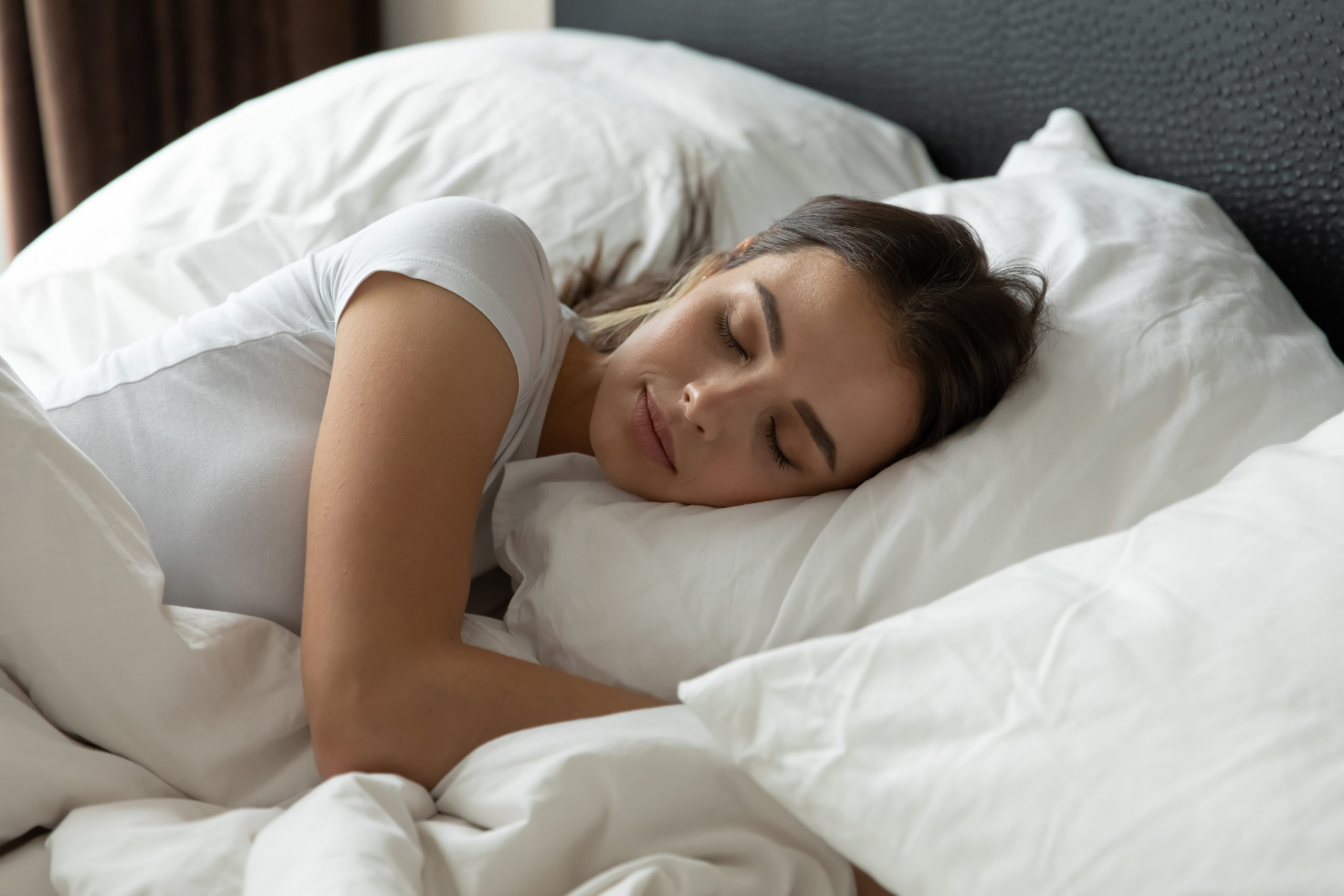Many common factors contribute to poor rest, including stress, anxiety, pain, medication, caffeine, alcohol, sleep disorders, and health conditions such as heartburn or asthma. It is vital to establish a sleep routine that fits your life and is proactive in fighting against these obstacles.

Benefits of a Good Night’s Sleep
According to the U.S. Office of Disease Prevention and Health Promotion (ODPHP), prioritizing rest is one of the best ways to support your immune system and overall health. Regular adequate sleep at night helps you:
- Get sick less often.
- Stay at a healthy weight.
- Lower your risk for serious health problems like diabetes.
- Reduce stress and improve your mood.
- Strengthen your heart health.
- Increase exercise performance.
- Improve your memory.
- Think more clearly and perform better in school or at work.
- Get along better with people.
- Make good decisions.
- Avoid injuries associated with sleepiness such as car wrecks.
The Ideal Sleep Schedule
Your body sets your internal biological clock, or circadian rhythm, based on the daylight pattern where you live. This process helps you naturally get tired at night and stay alert during the day. If you have to work in the evenings and sleep during the day, you may have trouble getting enough sleep. Your biological clock can also be disturbed when traveling to a different time zone.
The Centers for Disease Control and Prevention recommends adults between the ages of 18 and 60 should get at least seven hours of sleep per night, adults ages 61 to 64 should get between seven and nine hours per night, and those 65 years of age and older should get between seven and eight hours per night. The amount of sleep you need also depends on various factors, including:
Sleep quality – Frequently interrupted sleep is not quality sleep. The quality of your sleep is just as important as the quantity.
Previous sleep deprivation – If you are already sleep-deprived, the amount of sleep you need increases.
Pregnancy – Changes in hormone levels and physical discomfort can result in poor sleep quality.
Aging – Older adults need about the same amount of sleep as younger adults. As you get older, however, your sleeping patterns might change. Older adults tend to sleep more lightly, take longer to start sleeping and sleep for shorter periods than younger adults. Older adults also tend to wake up multiple times during the night.
Making small changes to your daily routine can help you get the sleep you need. During the day, try to spend time outdoors, get in some physical activity, limit caffeine intake late in the day, avoid eating a big meal close to bedtime and only drink alcohol in moderation. In the evening, work to establish a routine that will encourage better sleep, such as a consistent bedtime, avoiding screens close to that time, and creating a good sleep environment with limited light and noise.
Weight Loss Professionals Serving Ocean & Monmouth County, NJ
Losing weight and keeping it off can be a difficult and stressful undertaking without the right expertise and personal guidance on your side. Sure, you could order the next weight loss gimmick you see on TV, wait for a package to arrive in the mail, read the instructions, and follow the program in hopes that it might work.
Or you can clear away the clutter of ineffective weight-loss strategies, and get back to the basics of natural, doctor-supervised weight loss.
We’ve helped countless patients achieve their goals, and we’re absolutely confident we can help you too – no matter what your current size, and no matter what your particular weight loss goals might be.
Take the first step toward healthy and sustainable weight loss. Schedule your personal weight loss consultation today!
